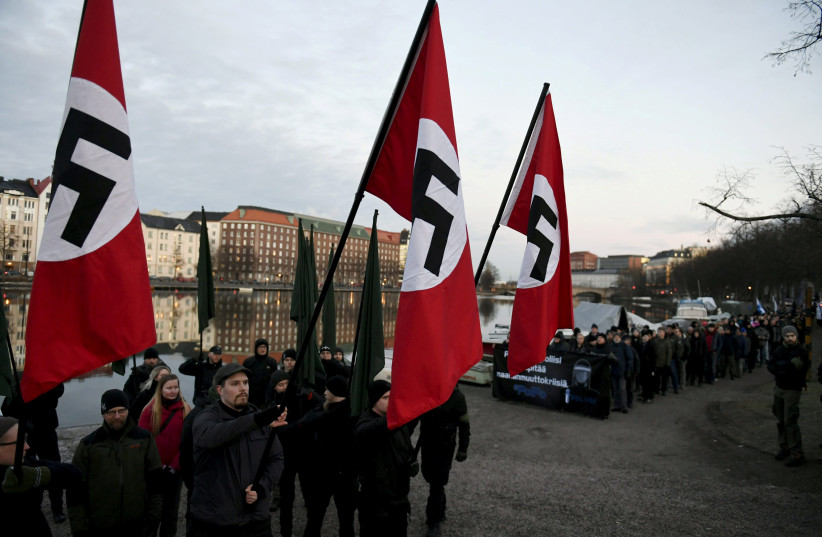The much-hyped new series, Carthago, which just premiered on Kan 11 and it is running on Sundays and Wednesdays at 9:15 p.m. - the first episodes are already available at www.kan.org.il - tells a strange story: In the 1940s, at the height of World War II, the British Mandate authorities deported Irgun and Lehi fighters held without trial from Palestine to a number of prison camps in Africa, among them one in Carthago, Sudan. There, these Jews were held alongside Nazi spies and Italian fascists, and the potential for conflict among the inmates was limitless.
The series was created by Reshef Levi (Lost Islands, Hunting Elephants), Yannets Levi (the author of the children’s book series, The Adventures of Uncle Arieh, and Reshef’s Brother) and Tomer Shani (Very Important Person) and is based on the memories of the Levis’ father, who was held in Carthago.
What is the series like?
But in spite of the fascinating, little-known story, the series combines a variety of genres and styles in a way that is often jarring. While some will respond to its black humor, others will be put off by its graphic violence and more than that, the cartoonish way the violence is handled. The first episode, in particular, is also marked by an inordinate amount of narration, which is meant to be clever and may have looked good on the page but after a while, you may start to think, “Does that guy have to start talking again?”

This combination of snark and sadistic physical violence (if you don’t like torture scenes, this isn’t the show for you) became a kind of trademark for Quentin Tarantino and at times I wished that the American director, who currently resides in Tel Aviv with his Israeli wife and kids, had been brought in to work on it. Tarantino can blend comedy, tragedy and the sadistic infliction of pain on those who get caught up in historical events or crimes seamlessly, so much so that afterward, it may seem strange to you that you laughed at certain graphic scenes. But most of all, he makes you want to keep watching. While Carthago looks to have been a very expensive series shot abroad with both Israel and international actors, it takes a few episodes to create the kind of suspense that will draw you in.
URI GOV, an actor previously known for the television series, Palmach, plays the main character, Elijah Levi, a flamboyant Tel Aviv comic entertainer who claims not to know why he ended up in the camp. He is first introduced hooded and handcuffed to a small British guy, as both are transported to the camp, and he has come to feel a bond with this Brit during their long journey. But when the hoods come off at Carthago, the British guy turns out to be Thomas Edinburgh (Oliver Buckner), a Nazi spy (whom we later learn is motivated by resentment for his stern, English father). But while Elijah and Thomas are on opposite sides of World War II, in the camp they are both inmates and upon arrival are savagely beaten by local guards, to the enthusiastic encouragement of the deputy camp commander (Shaun Paul McGrath).
Housed in separate barracks with their comrades, they get different receptions. Thomas is treated with respect by his fellow Nazis and soon learns a strange secret about his background, which may or may not be British psychological warfare. Elijah is branded by his fellow internees with a Star of David with a poker and told by the leader of the camp’s Jews, Jacob Dan (Reshef Levi), that he will be executed in three days, during Hanukkah. For different reasons, both Thomas and Elijah are set on escaping into the jungle as soon as possible.
Rounding out the cast and the intrigue are the camp commander, Lord James Davidson (Philip Glenister), who recently survived an assassination attempt in Palestine and whose appointment as the camp head marks a downgrade in his status and his sexy young French wife, Helena (Carolina Jurczak), a nurse, who has some surprising connections to some of the other characters. Among the Jewish inmates are Torso (Yaakov Zada Daniel of Fauda) and Meni (Henry David, one of the stars of Rabies).
It gradually gathers steam with each new episode and given its unusual subject matter, is worth tuning in to despite the flaws in the pilot. The gallows humor, the escape storylines and the general glimpse into a strange world where Jews and Nazis live alongside each other make for intriguing viewing.
